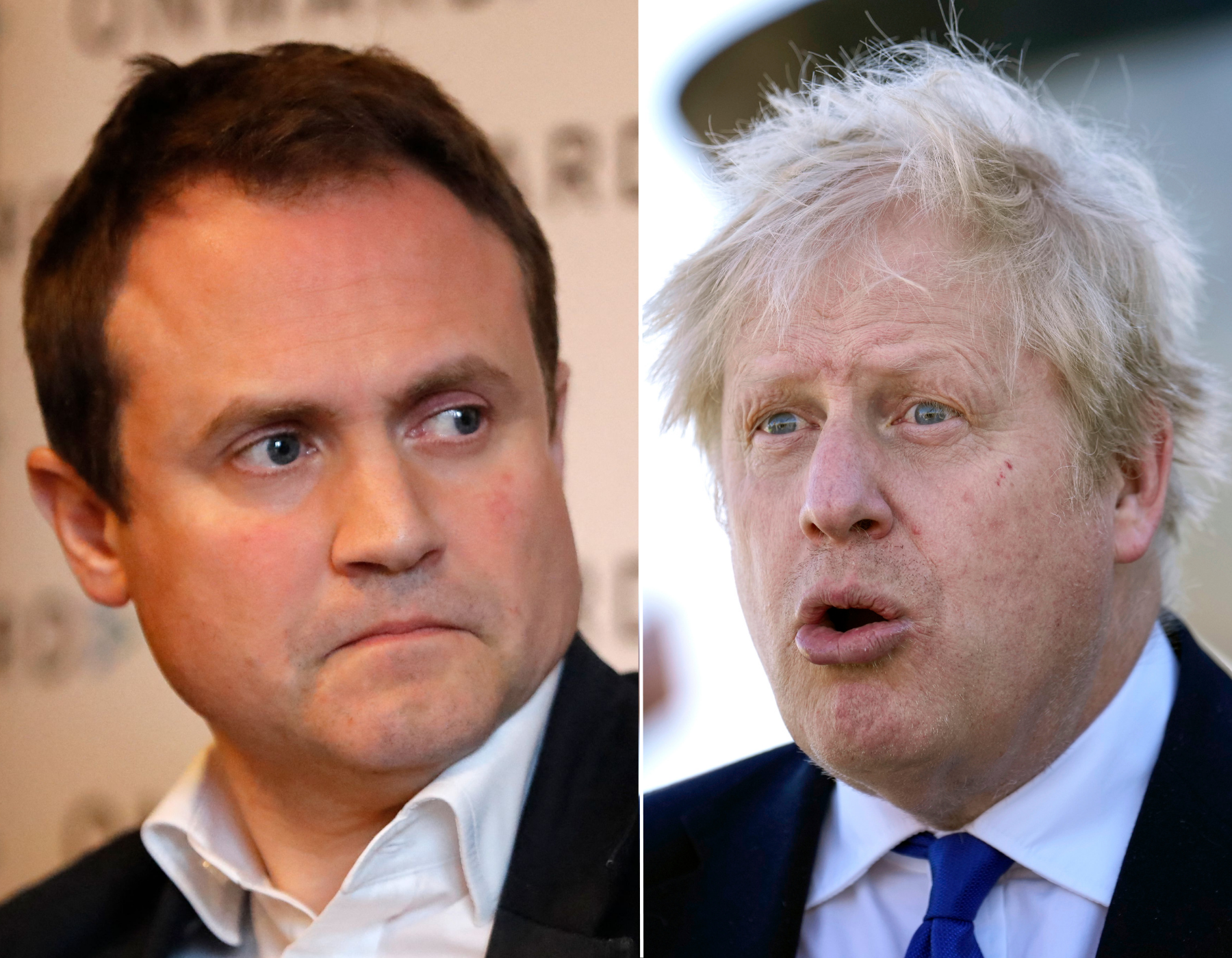Tom Tugendhat may be the surprise contender, but he represents true Tory values
His establishment background will appeal to old-school Tories tiring of former newspaper columnist Boris Johnson’s crowd-pleasing approach, writes Andrew Woodcock


One intriguing consequence of Rishi Sunak’s precipitous fall from favour over the past week has been the sudden surge in interest in an MP little known outside Westminster: Tonbridge’s Tom Tugendhat.
As the chancellor vanished from the leaderboards in the wake of The Independent’s exposure of his wife’s non-dom status, the son of a judge and former soldier shot up from rank outsider status to be rated second favourite to succeed Boris Johnson, by some bookies, after foreign secretary Liz Truss.
Now, the fact that a few political obsessives (and who else is betting on the Tory leadership rather than football or the horses?) have punted a fiver on the 48-year-old’s future clearly doesn’t mean that a backbencher with no ministerial experience is suddenly going to stroll into No 10.
But it reflects a growing yearning on the Conservative benches for a return to the seriousness and respectability the party used to pride itself on and which some fear is being sacrificed under the twin influences of Johnson and Brexit.
Obviously, this has come to the fore due to the Partygate scandal, with the refrain often muttered by Tory MPs that “this wouldn’t have happened under Thatcher/Major/May” – or sometimes even Cameron.
But there is also an emerging sense that the party’s core brand as a force for competent government, support for business, free trade, British influence in the world and strong alliances with international partners, is being permanently tarnished by the whole Brexit project ushered in by Johnson.
Despite the cheerleading from the top, the realisation is dawning among some traditional Tories that EU withdrawal has so far failed to deliver dividends on any of this list of what were once existential principles for the party.
And there is some unease at the reported determination of Johnson’s adviser, Lynton Crosby, to put Brexit – and populist stunts like exporting asylum seekers to Rwanda – at the heart of the Tory platform for the next election, rather than more pressing issues like economic recovery or the cost of living crisis.
Mr Tugendhat backed Remain in the 2016 referendum but supported Theresa May’s efforts to find a workable Brexit, and there is no suggestion he is about to startle the Tory horses by advocating an abrupt volte-face on the issue.
But he has been open in his disdain for Mr Johnson’s confrontational approach to the UK’s European allies and carelessness with the country’s international reputation.
Serving as chair of the Commons Foreign Affairs Committee, he has been vocal on long-term issues facing the UK globally, hawkish on China, early to warn of the threat from Russia, and insistent on the need to avoid energy dependency.
His establishment background, distinguished military career in Iraq and Afghanistan, and stints in intelligence and as an aide to the chief of defence staff, will appeal to old-school Tories tiring of former newspaper columnist Mr Johnson’s crowd-pleasing approach.
None of this is to paint him as a shoo-in during a leadership battle if one was held soon. He is far more likely to end up as the Rory Stewart of any contest, briefly exciting centrists before being flattened by less austere siren voices from the right, as the former development secretary was in 2019.
But the fact he is being taken seriously as a contender may be an early sign of a struggle for the party’s soul in years to come.
Success in the Brexit fight has been a heady brew for Tories and dragged the party onto ground which some traditional voters and business supporters find deeply uncomfortable.
It may not happen for a decade or more, and Tugendhat may not be the person to lead it, but it seems inevitable that one day there will be a determined attempt among Conservatives to ditch Europhobia as a guiding light and steer back towards the principles which have traditionally allowed them to present themselves as the sensible party.
Yours,
Andrew Woodcock
Political editor
Join our commenting forum
Join thought-provoking conversations, follow other Independent readers and see their replies
Comments
Bookmark popover
Removed from bookmarks